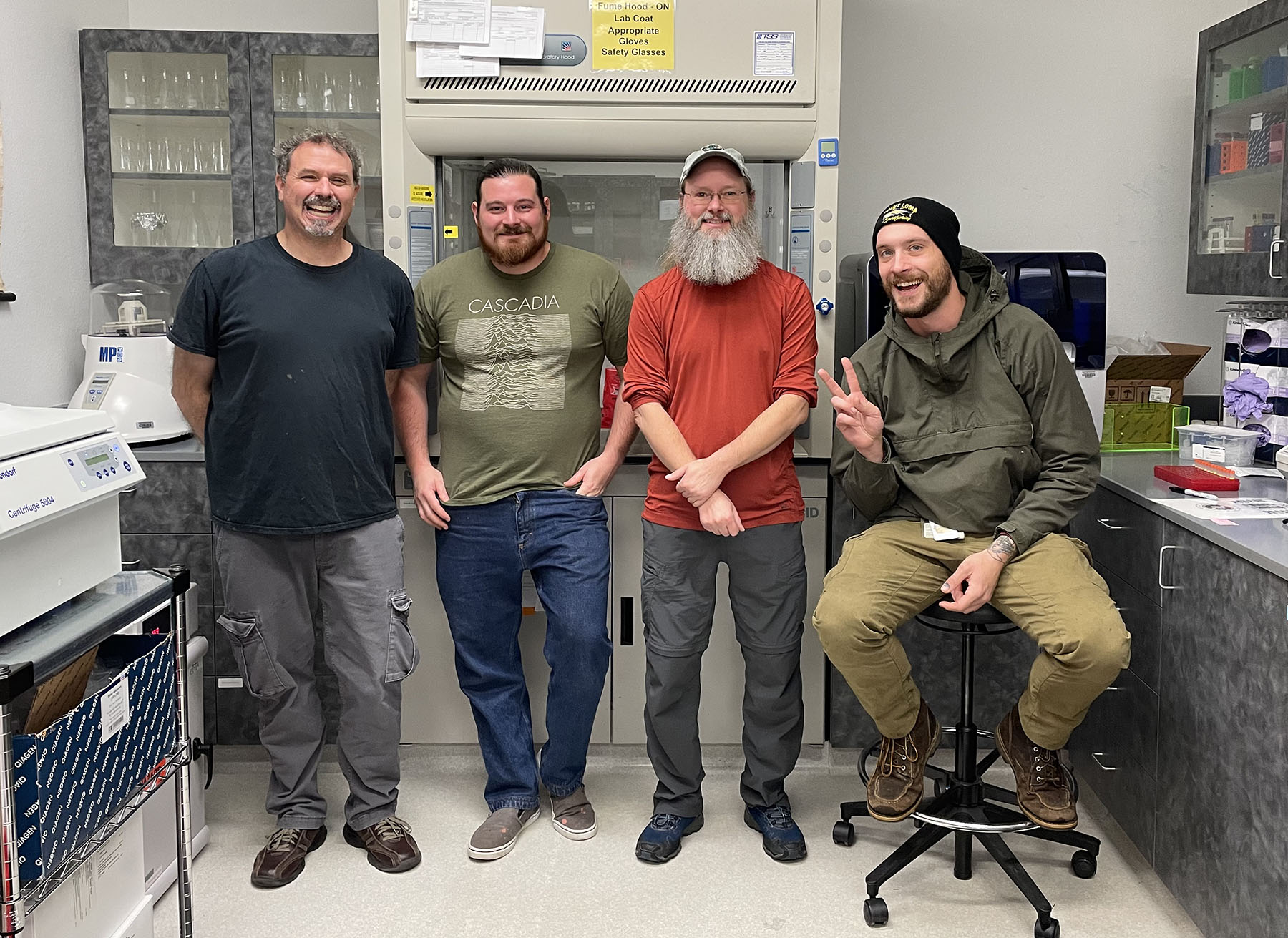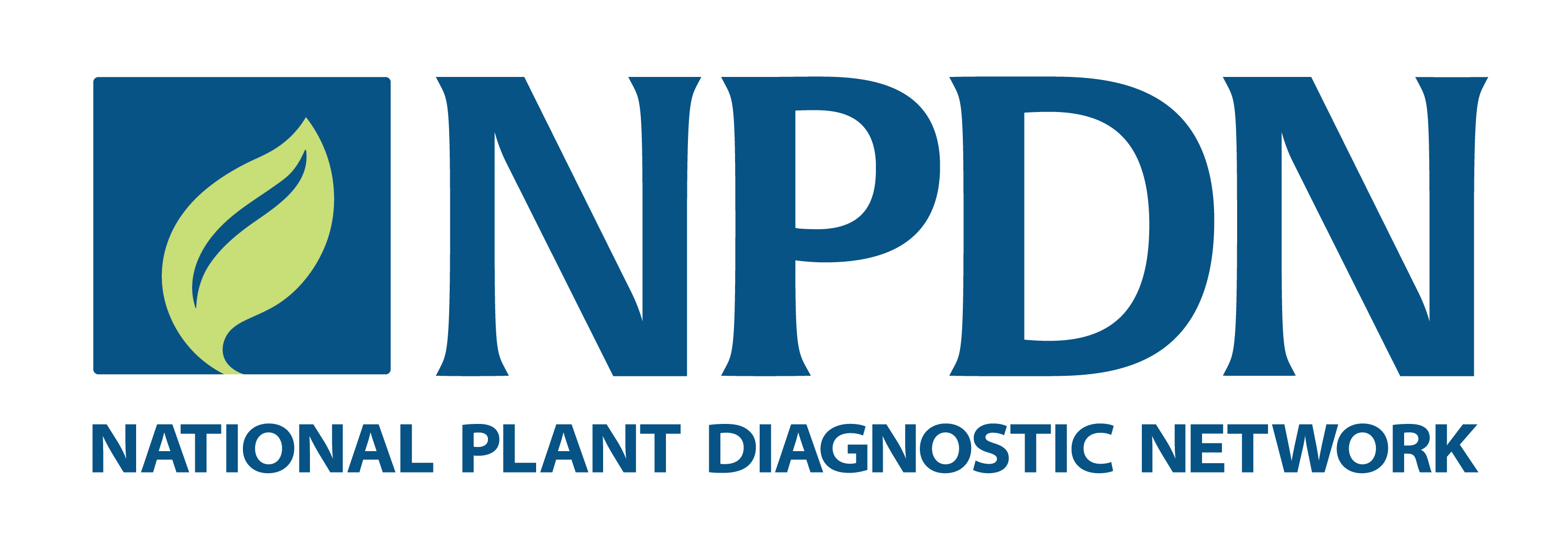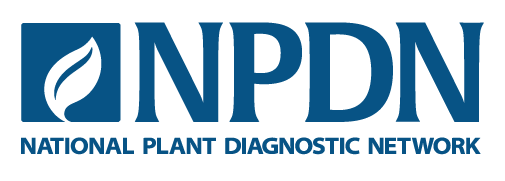Telissa Wilson1, Jennifer Falacy1, and Todd Steinlage2
1Washington State Department of Agriculture, 2Alaska DNR – Division of Agriculture
In early 2020, diagnosticians at the Washington State Department of Agriculture (WSDA), Alaska Division of Agriculture, and University of Florida received funding from NPDN to conduct a diagnostician exchange. Fast forward through a few years of COVID travel restrictions, and we have finally been able to begin our exchange! For those interested, here is a summary of how it is going so far.
The grant covers a four-part exchange between diagnosticians in Alaska, Washington, and Florida.
So far, Todd Steinlage from the Alaska Division of Agriculture has visited the Washington State Department of Agriculture’s Plant Pathology Lab, and Jennifer Falacy and Telissa Wilson (from WSDA) have visited the University of Florida’s Plant Diagnostic Center, the Southern NPDN hub lab. Coming up, Nathan Chambers (WSDA) will visit Todd in Alaska, and Melissa Irizarry and Brianna Benitez (University of Florida) will visit the WSDA.
NPDN supports diagnostician exchanges to strengthen our network. Reach out to your regional center if you are interested in getting NPDN funds for an exchange. To aid future exchanges, we will be providing NPDN with templates of forms designed to streamline planning exchanges.
Highlights from Todd’s Trip to WSDA
“The WSDA lab gave honest opinions about techniques and equipment, and what works for them. This is really useful since no one has the time or money to try out everything. Greater efficiency in methods and more flexibility is always welcome. An example is the use of Zygem DNA extraction kits, for use with FTA cards. This makes sample storage easy, and extractions are very fast and convenient. Another is the update to the phytoplasma DNA extraction work instructions, allowing the use of Qiagen Plant Pro kits, rather than CTAB and β-mercaptoethanol (I was unaware of the update). We also worked in Geneious to design a gBlock synthetic positive control. The integration of so many resources in one program is very convenient compared to the old program I use. In addition, the bioinformatics trainings from the APHIS PPCDL use Geneious. We also discussed federal programs like the Plant Protection Act (PPA) and Specialty Crop Block Grant (SCBG) (as well as the Cooperative Agricultural Pest Survey [CAPS]) and the possibility of working together on surveys. Getting to know everyone in Washington has made me much more likely to reach out to WSDA for help in the future."
I want to express my sincere thanks to everyone in NPDN and WSDA who made this exchange possible. I really enjoyed meeting everyone and am looking forward to future collaborations.” 
Pictured from left to right: Nathan Chambers, Sam Brown, Todd Steinlage, and Michael Melchert at the WSDA Plant Pathology and Molecular Diagnostics lab in Olympia, Washington.
Highlights from Telissa and Jen’s Trip to University of Florida Plant Diagnostic Center
“This trip helped me better realize that the UF Plant Diagnostic Center has a unique set of skills and knowledge, and that a state regulatory lab’s repertoire of experience nicely compliments such skills. The work they do was so CSI in nature, and very exciting compared to the regulatory testing I am more familiar with. Being able to take part in such an exchange truly deepened our ability to network with one another and draw upon each other’s skills, experience, and knowledge, and it connected us in a deeper way than the shorter interactions that take place during annual meetings and conferences.”
“During our visit to the University of Florida Plant Diagnostic Center I discovered that the Florida lab has similar equipment and processes as we have in our Washington State Department of Agriculture lab. This was exciting because we could potentially share protocols and work instructions with each other or help each other if either lab was backed up or had unforeseen issues. The UF lab used more traditional morphological taxonomic methods than our more molecular-based lab. This was exciting because this is something our lab does not get to do as often due to time constraints. The most valuable aspect of this visit was connecting with other people who have complementary skills and whose unique perspectives on looking at a problem might offer solutions we might not have considered.”
Pictured: Jen Falacy and Telissa Wilson with the University of Florida Plant Clinic diagnosticians.

